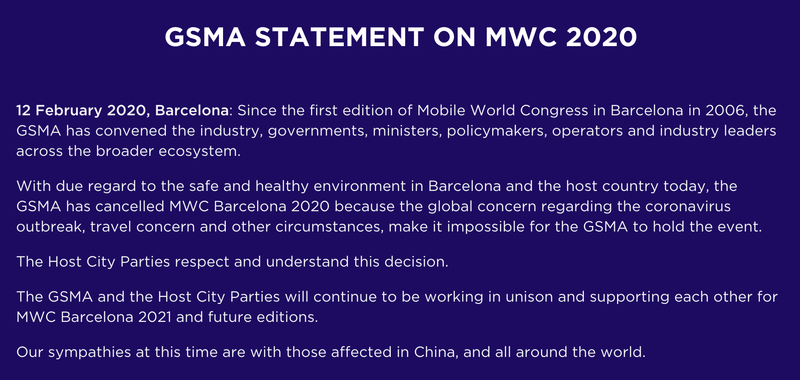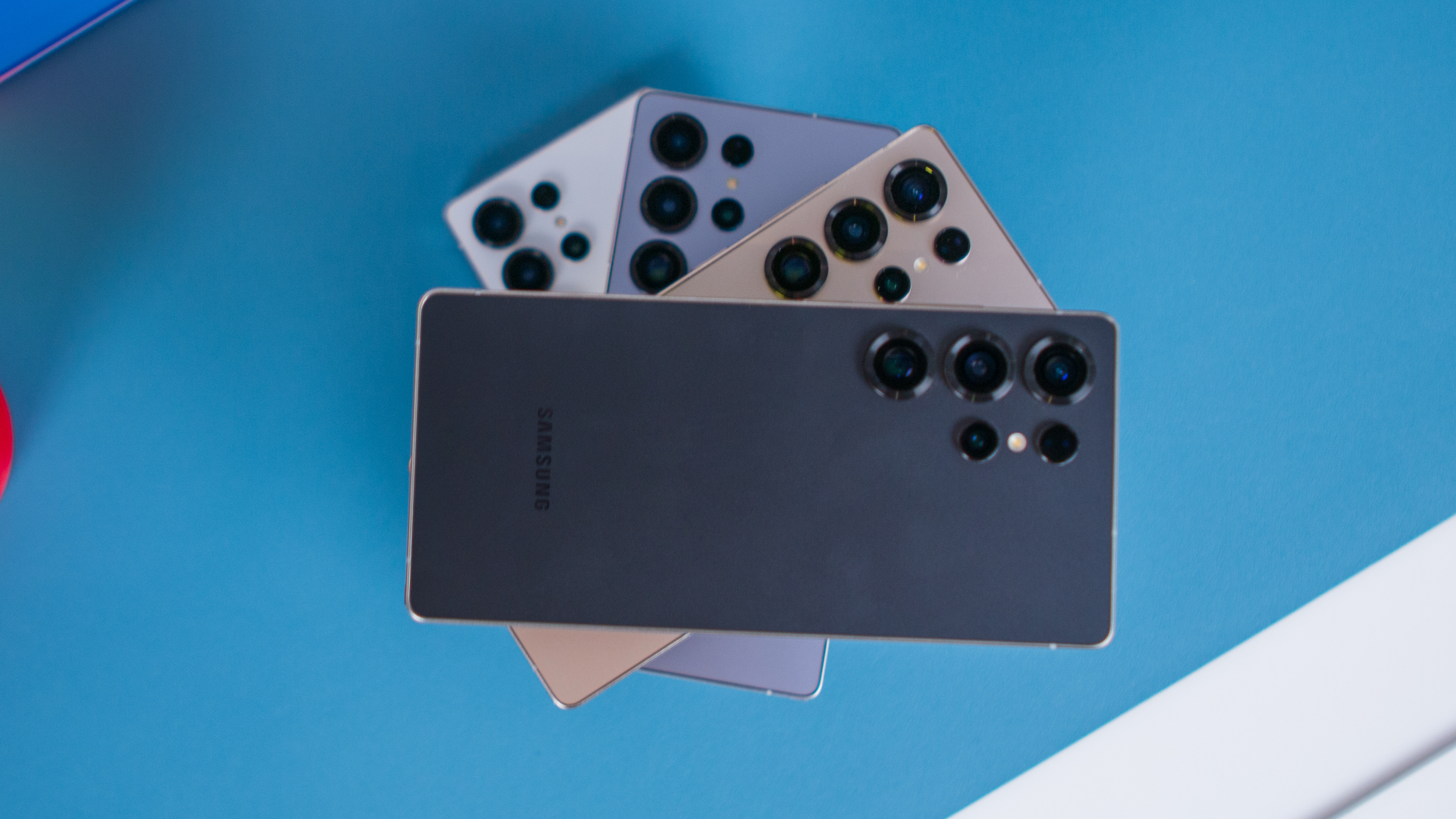MWC 2020 is dead, so what happens now?
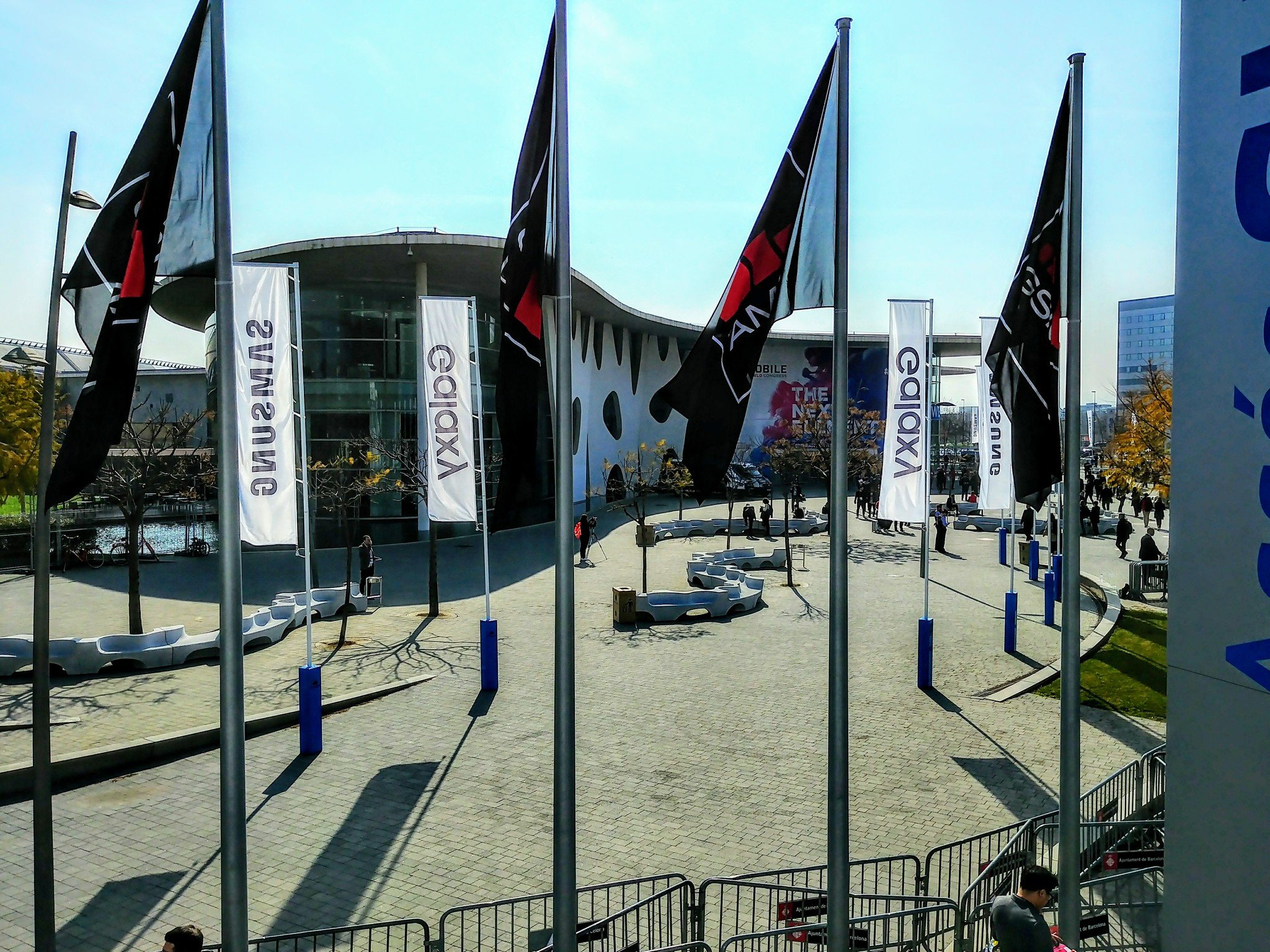
On February 12, roughly one week before most press were set to leave for Barcelona, the GSMA (the industry organization that runs the show) chose to cancel the MWC 2020 trade show over continued concerns with the spread of COVID-19 (aka Coronavirus).
The news hit particularly hard because MWC had solidified itself as the mobile show for the world, and in most ways has become more important than CES earlier in the year. So with the show officially called off, what can we expect in the next few weeks, and for MWC 2021?
Why did they choose to cancel MWC 2020?
The GSMA said it would be "impossible" for the show to go on with the steady increase in concern over the COVID-19 virus spreading from region to region, particularly considering the historically heavy influence of Chinese companies at the show. Originally the GSMA had set guidelines for who could and could not attend the show, and followed the generally recognized precaution of having a 14-day quarantine for people coming from China, but that eventually gave way to a full cancellation.
While it's true COVID-19 is a concern, the real problem was dozens of high-profile companies pulling out.
While it's true the COVID-19 virus is top-of-mind for many people and it isn't fully understood just how widespread it is, the real issue that led to the cancellation was the rapidly deteriorating attendance. Dozens of the largest companies set to attend the show had already pulled out within the week prior, and many others had dramatically scaled back their activities, cancelling their press conferences. Press outlets had started to follow suit as a result.
With the anchor tenants of the show already removed or reduced to a skeleton crew, the GSMA's hand was effectively forced. Continuing on under these circumstances, with perhaps half or less of the attendance originally expected, would in itself have been quite a disaster for the show.
What about the phones that were going to launch?
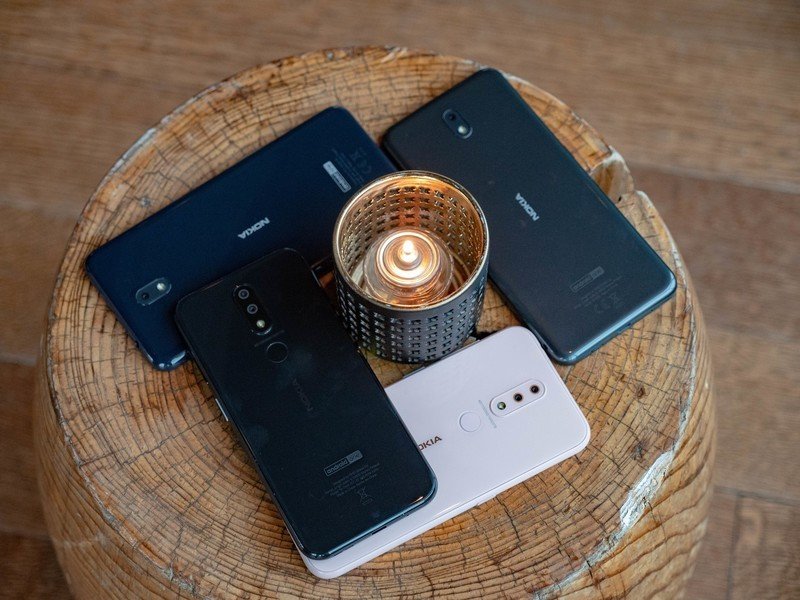
Though big players like Samsung choose to launch products on their own accord, big trade shows like MWC are a great platform for smaller companies — or big companies with smaller-impact products— to launch because of the high concentration of journalists and partners already in attendance. MWC 2020 was expected to bring product announcements from Motorola, HMD Global (Nokia), Sony, LG, TCL, Xiaomi, Honor, Huawei, Lenovo, Oppo, ZTE and more.
Each company will inevitably find a new approach to launching their products — it just won't be as impactful.
Each company will inevitably find a new approach to launching these products. Most are not going to be big enough to warrant their own separate events — which is why they were at MWC in the first place — and will likely be replaced by a rollout of post-launch marketing materials that were already planned. It's not ideal, but there's already so much in motion with these launches that it's cost-prohibitive to change anything else. In some cases, this strategy will actually delay their launches, as they shift their resources into a new strategy.
Get the latest news from Android Central, your trusted companion in the world of Android
In either case, we will all have to wait a bit longer for true hands-on time with this round of devices as companies shift their strategies to ship out products to reviewers that would have otherwise seen them at the show. This early hands-on time usually satiates our desire to learn about the new products, so it may feel like a "delay" to the launch when in reality things are moving according to the usual time frame.
What business will be affected most?
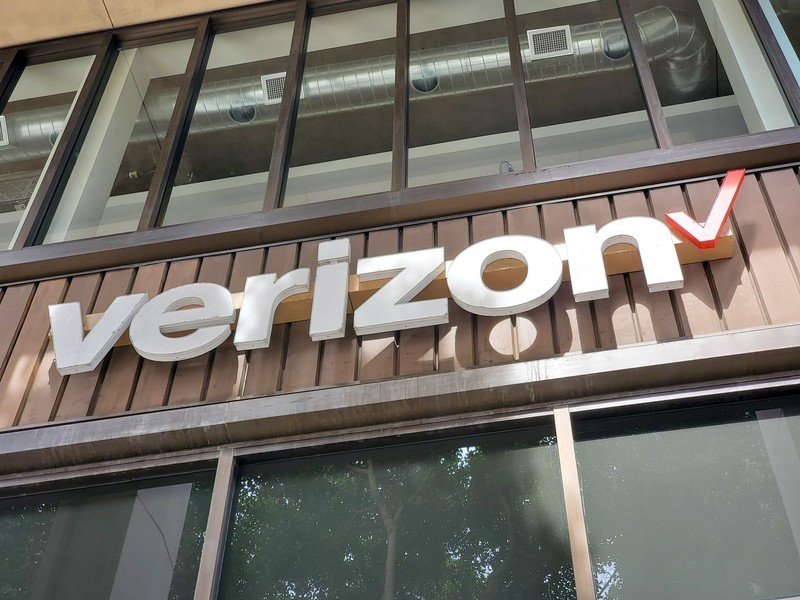
The behind-the-scenes business and enterprise functions may feel the brunt of the cancellation.
For as much as we like to focus on the consumer-facing phone, tablet and computer announcements, MWC is a massive show for the network, carrier and chipset side of the industry. The GSMA represents all parts of the wireless industry, all the way down to infrastructure providers — and some of the companies with the biggest presences at MWC are on this side of things.
Between the keynotes, panels, meetings and business partner gatherings, a majority of what's happening around MWC relates to the network and carrier business. It can easily be said that MWC 2020 being canceled hurts the business and enterprise side of the mobile industry much more than the consumer side. Yes they'll be able to take their meetings and make their business deals elsewhere, but there's a reason why MWC had such a draw — it was a great place to get everything done at once.
Is anything still happening in Barcelona this year?
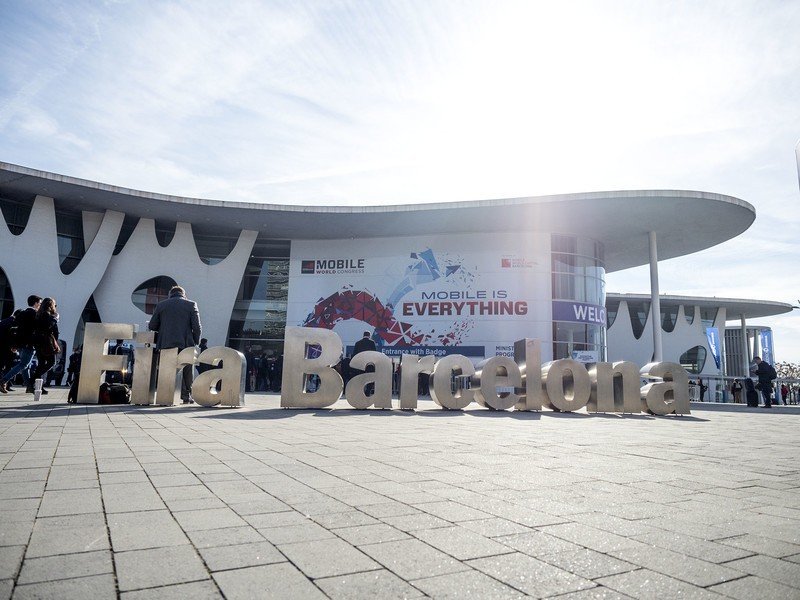
Officially, no. Unofficially ... kind of. So many major companies had already removed themselves from MWC that the city was already going to be a bit of a ghost town next week. Now, it's really going to be empty. The last few companies that were still holding onto their press conferences have given up now that the show has been officially cancelled, and that means few companies will be left with any sort of representatives at the show.
Even with most people — on all sides of the show — having booked flights and hotels months ago, it just isn't worth going to Barcelona at this point. It's a bit of a chicken-and-the-egg problem as well: journalists won't attend if there aren't lots of companies confirmed to be there as well, and companies don't want to re-commit people to flights and accommodations if there's no coverage to be had. And so, just about everyone has pulled out.
You'll likely see that some people are still making the flights out to Spain — I mean, there's still plenty of sangria and jamón to be had — but there won't be any sort of official press conferences or notable announcements to be gained from it, unfortunately.
Will MWC come back in 2021?
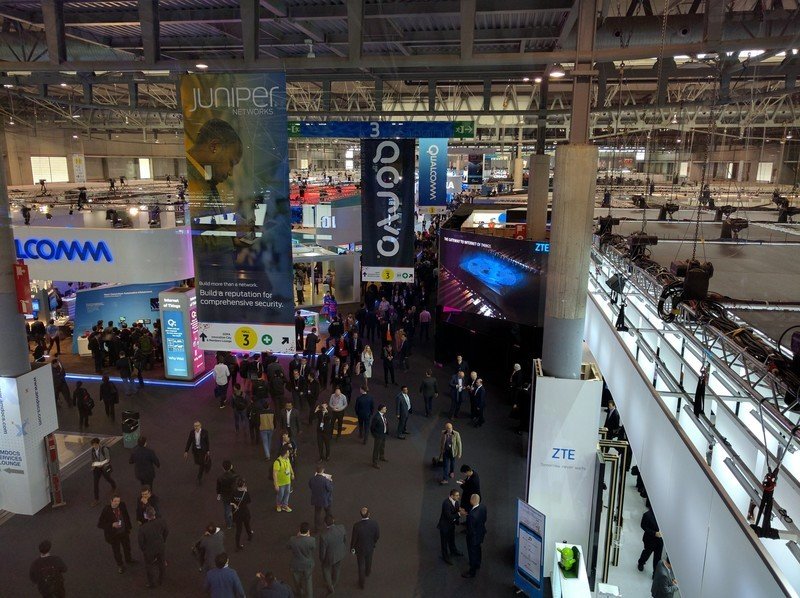
Plenty of people have speculated and jumped to conclusions as to what MWC 2020's cancellation means for the future of the show in general. Some have said that the money lost, plus the lost opportunities for revenue through the show, and perhaps more importantly the lost goodwill with the city of Barcelona, could lead the GSMA to drastically change MWC going forward.
John Hoffman, CEO of the GSMA, made it as clear as can be in his official statement that MWC 2021 will be happening:
The GSMA and the Host City Parties will continue to be working in unison and supporting each other for MWC Barcelona 2021 and future editions.
More realistically, the GSMA will take this opportunity to put new safeguards in place in case something of this sort were to ever happen again. Up to this point, the GSMA and the city of Barcelona were both generally happy with the success of MWC, and it's unlikely that this cancellation — which was generally out of the control of the GSMA — would lead to severing that partnership.
This is a black mark on the show, for sure, but I feel as though everyone understands that this is an extenuating circumstance and not the fault of the GSMA in any way. And as of last year, MWC was still as strong as ever. I would fully expect MWC to be back in Barcelona in 2021, albeit with some precautions put in place from the GSMA, companies and attendees alike.

Andrew was an Executive Editor, U.S. at Android Central between 2012 and 2020.
